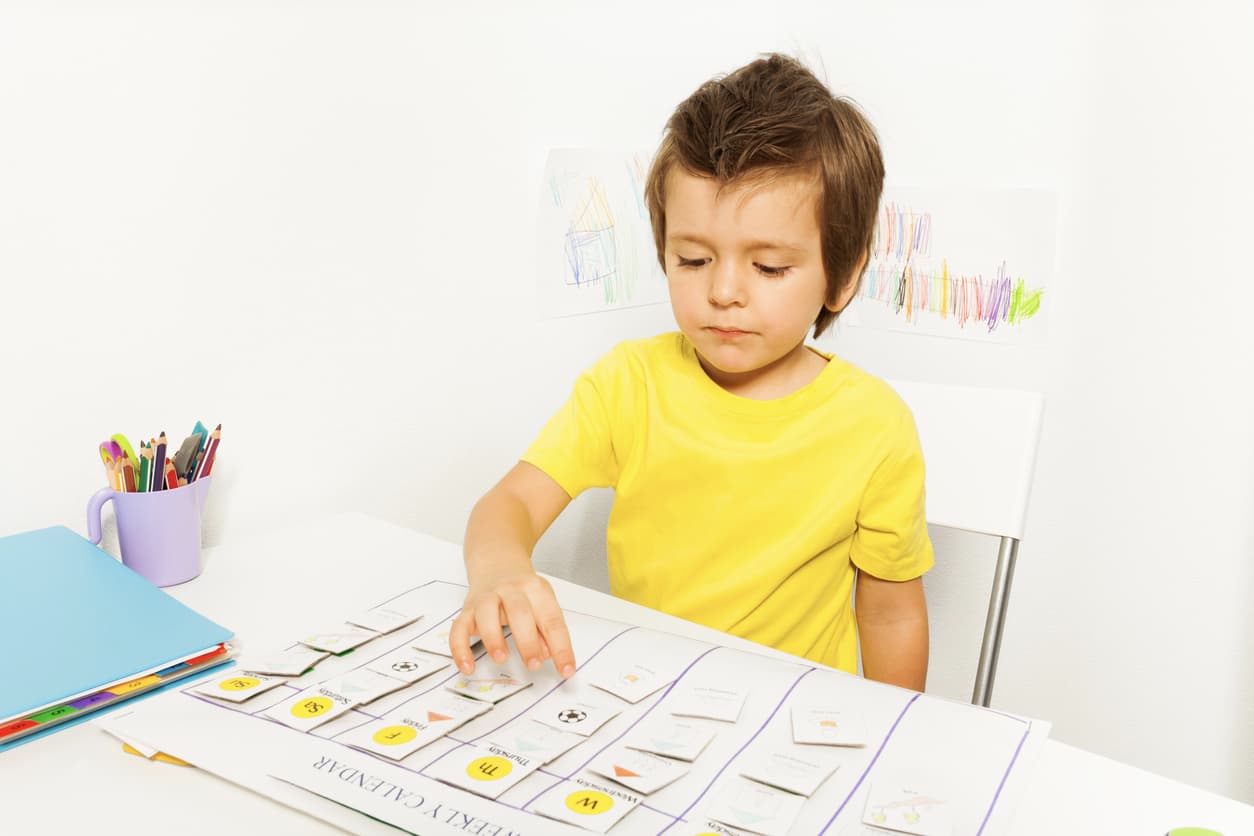Humans thrive on routine. All people, regardless of age, lifestyle, or background, benefit from having an established schedule in their lives. Routines at home are particularly helpful for children with autism due to their repetitive patterns of behavior, activities, and hobbies. The adherence to an established routine can be a powerful tool in bringing stability and comfort to their lives.
There is a great deal of research that shows that the implementation of a predictable, daily routine at home for your child with autism can help them function more independently and improve social-emotional health.
Daily routines can:
- Build a stronger caregiver-child connection
- Reduce power struggles and stress
- Improve cooperation
- Foster a genuine sense of ownership over their day
- Create an environment of security and comfort
With consistency and predictability, you can help your child with autism establish order in their life. Routines are key to helping them thrive for the following reasons:
Routine Comes Naturally
Children with autism tend to prefer repetition and sameness. Whether it’s for their preferred activities, hobbies, mealtimes, waking. up, or bedtime, routines come naturally to them. Routines can be a great tool that helps your children in a way that feels natural and comforting to them.
Routine Provides Stress Relief
All individuals, including children with autism, can find relief in knowing what to expect at any given time in their schedule. As your child learns to make sense of their surroundings and expectations, a routine can help them navigate their life with ease and confidence.
Routine Brings Order to an Otherwise Chaotic World
Children with autism often have difficulty making sense of new sounds, behaviors, or events. A routine can create order in their life by helping them learn what to expect, when to expect it, and how to react. Predictability can enable your child to thrive.
Routines at Home Can Help Children with Autism Learn New Skills
When your child feels safe, secure, and their stress levels are down, they’re in a more receptive state to strengthen existing skills and learn new ones. Providing them with a familiar routine is a great way to not only help them cope with possibly anxiety-inducing situations but also to set them up to achieve new things.
Tips to Successfully Maintain a Routine
Creating a successful routine for your child does not have to be complex or overwhelming. Use the following tips to create a simple routine that sets the whole family up for success:
- Create a visual tool such as a calendar on the fridge or poster on the wall to help your child understand their routine
- Use positive reinforcement with tools like a sticker chart to reward completion of tasks
- Refer often to the visual schedule and reinforce the importance of each event or task
- Use verbal communication to walk your child through each task – before, during, and after
- Once you and your child have maintained a consistent schedule, gradually add new tasks into the routine to help them learn new skills and behaviors
When you are raising a child with autism, you must provide the tools and skills to help your child thrive. Building and maintaining routines will go a long way in helping your child learn new skills, make progress, and achieve goals.
At BlueSprig, we offer ABA therapy in California for children with ASD. Let us help you by providing the support you need. For more information about the intentional and compassionate services we provide, contact us at (209) 422-3280.
